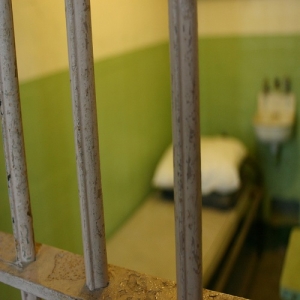HMP Ranby; One of Britain’s Ten Worst Prisons
HMP Ranby is a category C training and settlement prison for adult males in Ranby, Nottinghamshire. HMP Ranby has a capacity of 1038 and takes mainly convicted prisoners with a two to ten year sentence. It was opened in 1972 and has grown significantly over the years. HMP Ranby was originally a World War 2 British Army Camp and some of the billeted accommodation is still in use at the prison. Purpose built cell blocks were added in the 1980s and two further wings in 1996, two more in 1998 and the last in March, 2008. Ranby has a very long perimeter fence and is in a rural setting making it quite difficult to police.

In 2014 Ranby was described as a prison in crisis. It received a shocking inspection report, but in truth, the prison had been in struggling since at least 2002, with reports severely critical of the prison and its treatment of inmates. Due to the failures, and concerns over four inmate suicides in 2014, another inspection was quickly carried out in 2015.
The 2014 inspection had felt the prison was soon to be ‘overwhelmed by drugs’ unless firm action was taken. By the time of the 2015 report some improvements had been made, but not enough, the prison was still not safe. Levels of drug use and violence were critically high. The prison found itself on Prison Minister, Rory Stewart’s list of Britain’s Ten Worst Prisons.
In August 2018 Ranby was awarded part of £10 million put aside to improve the security and safety of these ten prisons. Devices such as electronic scanners, sniffer dogs, and perimeter security are thought to be making a difference in the battle against drugs, which are at the heart of HMP Ranby’s problems.
HMP Ranby was re-inspected in June 2018 and praised for making significant improvements in many areas and ‘was getting ‘the basics right’. However, the inspectorate still had grave concerns over the supply and use of drugs in the prison. The drugs seem to be getting into the prison primarily through letters impregnated with psychoactive substances. It is hoped the scanners will be effective in detecting the drugs and will curb the supply of drugs into the prison. Drug use in the prison was about 28%, and 66% of the prisoners said drugs were easy to get hold of inside. One-fifth of inmates said they had become addicted when inside.
The report said although violence had increased the incidents was mostly minor and the level was now more on a par with that in similar prisons. However, self-harm was also increasing in the prison and this was linked to the use of drugs and the ensuing debt problems. Another area of grave concern was the management of prisoners in crisis; this was seen as often inconsistent and poor and needed serious improvement.
Improvements commented on were that staff-inmate relationships were generally good and prisoners felt respected. The living environment of the prison was considered to be good and had improved in some areas. Teaching and learning were said to be good with enough places for all who wanted to enrol.
The inspection report noted that HMP Ranby was a difficult prison to run; however, the staff understood the challenges they faced and were working to improve all areas of prison life. The report concluded by saying the prison well led under the current governor and the inspectorate was confident that further improvements would be made in the coming months.